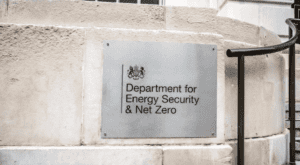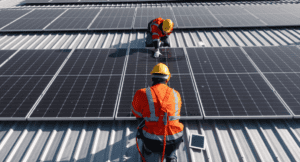
From pledge to practice: Assessing the UK’s net zero commitment
In 2019, the UK government became the first major economy to pass laws with a target of net zero

In 2019, the UK government became the first major economy to pass laws with a target of net zero

The US Inflation Reduction Act has sparked concern in the EU that it could shift investments to the US,

To achieve the internationally agreed temperature targets, increasingly stringent climate policies are of utmost importance. This column argues that

Carbon pricing initiatives, in the form of carbon taxes or emissions trading systems, have mushroomed in the last two

The EU recently settled on a revision of its fiscal rules, replacing a system increasingly perceived as ‘one size

Achieving global net zero emissions requires rapid deployment of low-carbon technologies. Using online job postings from 35 countries, this

A recent report from the International Panel on Climate Change reveals a consistent rise in extreme heat days, affecting

Greening the economy will entail the contraction of high-polluting jobs. This column presents new OECD research using labour force

As the planet warms, the escalation in both frequency and severity of natural disasters be-comes a pressing concern. This

Decarbonising the world economy will require workforces with the skills to support the diffusion of climate-friendly technologies. The effects

In 2019, the UK government became the first major economy to pass laws with a target of net zero

The US Inflation Reduction Act has sparked concern in the EU that it could shift investments to the US,

To achieve the internationally agreed temperature targets, increasingly stringent climate policies are of utmost importance. This column argues that

Carbon pricing initiatives, in the form of carbon taxes or emissions trading systems, have mushroomed in the last two

The EU recently settled on a revision of its fiscal rules, replacing a system increasingly perceived as ‘one size

Achieving global net zero emissions requires rapid deployment of low-carbon technologies. Using online job postings from 35 countries, this

A recent report from the International Panel on Climate Change reveals a consistent rise in extreme heat days, affecting

Greening the economy will entail the contraction of high-polluting jobs. This column presents new OECD research using labour force

As the planet warms, the escalation in both frequency and severity of natural disasters be-comes a pressing concern. This

Decarbonising the world economy will require workforces with the skills to support the diffusion of climate-friendly technologies. The effects




Copyright © 2025 Global Business & Finance Magazine. All Rights Reserved.